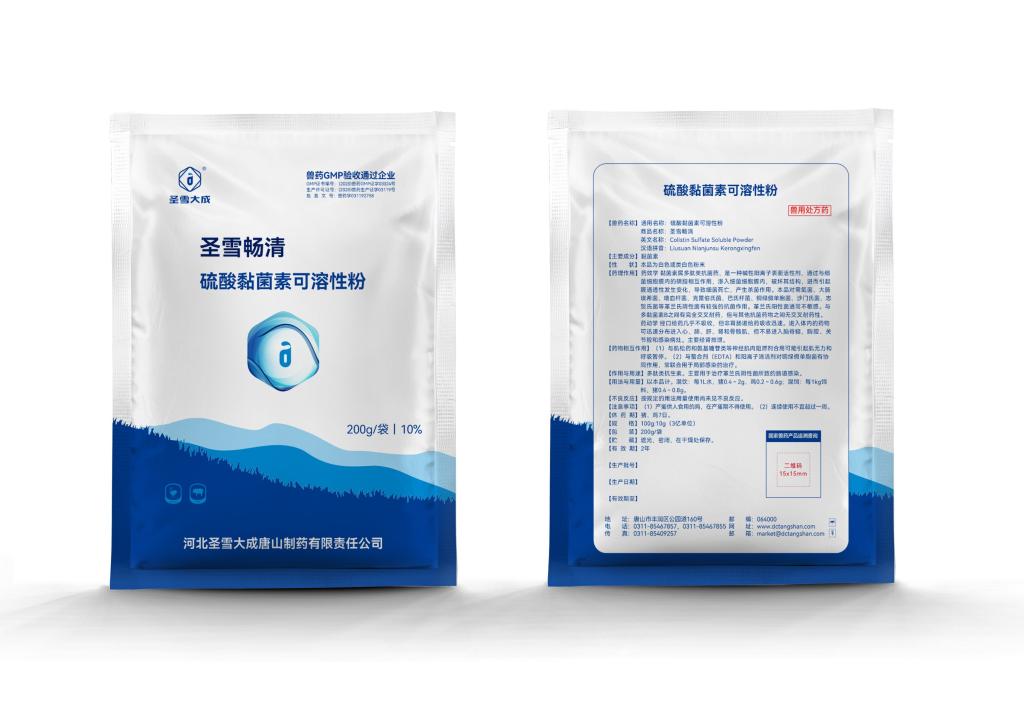Tel:+8618231198596

News
 CONTACT
CONTACT
 CONTACT
CONTACT
- Linkman:Linda Yao
- Tel: +8618231198596
- Email:linda.yao@dcpharma.cn
- Linkman:CHARLES.WANG
- Department:Overseas
- Tel: 0086 0311-85537378 0086 0311-85539701
News
Current Position:
Home >
News
>Sustainable Livestock Farming: Colistin Sulfate Soluble Powder Considerations.
Sustainable Livestock Farming: Colistin Sulfate Soluble Powder Considerations.
TIME:2024-01-08
1. Historical Evolution of Colistin Sulfate in Livestock Farming:
Colistin sulfate's journey in livestock farming reflects its evolution from a human antibiotic to a crucial tool for maintaining animal health. This section traces the historical adoption of colistin sulfate in the livestock industry, highlighting its contributions and challenges over the years.
2. Current Applications and Importance in Livestock Health:
Colistin sulfate soluble powder is extensively used in livestock farming for disease prevention and control. This section explores the current applications of colistin sulfate, emphasizing its importance in safeguarding animal health and ensuring optimal productivity in various livestock sectors.
3. Disease Prevention Challenges in Livestock Farming:
Livestock farming faces numerous challenges related to disease prevention, and bacterial infections pose a significant threat to animal well-being. This section delves into common bacterial diseases affecting livestock and the role of colistin sulfate in addressing these challenges.
4. Antibiotic Resistance Concerns:
The overuse of antibiotics, including colistin sulfate, contributes to the rise of antibiotic-resistant bacteria. This section examines the concerns surrounding antibiotic resistance in livestock, the potential transmission of resistance to humans, and the implications for both animal and public health.
5. Environmental Impact and Residue Considerations:
The use of colistin sulfate in livestock farming raises environmental concerns. This section explores the environmental impact and residue considerations associated with its use, emphasizing the importance of sustainable practices to mitigate these effects.
6. Alternatives and Sustainable Practices:
Sustainable livestock farming entails exploring alternatives to antibiotics and adopting practices that minimize their use. This section discusses emerging alternatives, including probiotics, vaccines, improved husbandry practices, and selective breeding, as potential solutions for reducing reliance on colistin sulfate.
7. Regulatory Measures and Industry Practices:
Different countries have varying regulations and industry practices governing the use of colistin sulfate in livestock farming. This section provides an overview of global perspectives, examining regulatory measures, restrictions, and industry initiatives aimed at promoting responsible antibiotic use.
8. Technological Advancements and Precision Livestock Farming:
Technological advancements, such as precision livestock farming, offer opportunities to optimize antibiotic use in sustainable practices. This section explores how technology can be harnessed to enhance disease management, improve animal welfare, and reduce the overall reliance on antibiotics like colistin sulfate.
9. International Collaboration and Best Practices:
In the pursuit of sustainable livestock farming, international collaboration is essential. This section advocates for sharing best practices, knowledge exchange, and collaborative efforts to promote responsible antibiotic use globally, recognizing the interconnectedness of the livestock industry.
10. Future Directions and Research Needs:
As sustainable livestock farming continues to evolve, ongoing research is imperative to address the challenges and opportunities associated with colistin sulfate and other antibiotics. This section outlines potential future directions, including research priorities, policy changes, and technological innovations needed to ensure the sustainability of livestock production.
11. Conclusion:
Colistin sulfate soluble powder's role in sustainable livestock farming necessitates a careful and comprehensive approach. As the industry grapples with the dual goals of maintaining animal health and minimizing environmental impact, responsible antibiotic use is crucial. By embracing alternatives, adopting sustainable practices, and fostering international collaboration, the livestock farming sector can pave the way for a future where animal welfare, environmental stewardship, and human health are harmonized. Sustainable livestock farming is not just a choice; it is an imperative for the well-being of our planet, our animals, and future generations.
- Tel:+8618231198596
- Whatsapp:18231198596
- Chat With Skype







